Our Research
🔬📙💻🔑🔍🪩
A. Current research projects:
- Intensive and Comprehensive Aphasia Program (ICAP) in Hong Kong:
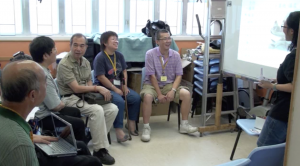
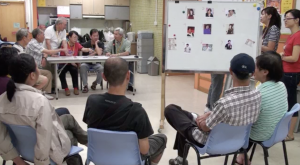
For over four decades, research has consistently shown that Intensive and Comprehensive Aphasia Program (ICAP) can produce more efficient and longer-lasting results than traditional speech therapy that typically consists of up to three hours of intervention per week. ICAP allows people with aphasia (PWA) to more practice of a language skill over a short period of time. The ongoing examination of the beneficial effects of applying ICAP to Chinese-speaking PWA will grow the evidence base for language and cognitive rehabilitation in individuals with brain damage. It will also bridge of the gap between basic science and clinical contexts through developing and testing different rehabilitation programs for Chinese-speaking PWA.
- Neuromodulation of Chinese (Cantonese) aphasia:
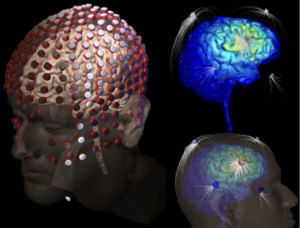
There is an increasing popularity of neuromodulation neurorehabilitation. A very small number of investigations, primarily focusing on non-Chinese speakers, have studied the potential clinical application of these techniques to acquired neurogenic conditions. Our lab is undergoing an innovative study to examine how neuromodulation techniques based on brain network remodeling is effective to improve Chinese language functions in the chronic stage of aphasia.
- Main Concept Analysis:
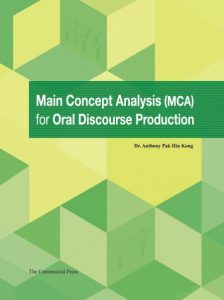
The main concept analysis (MCA) quantifies the effectiveness and efficiency of information transfer during verbal discourse by means of four sets of sequential pictorial stimuli. This test was originally developed for a Cantonese-speaking population. At present, translated versions and normative data are available in American English, Dutch, Japanese, Spanish, and Taiwanese Mandarin. The process of translation and the establishment of normative data are currently ongoing for the Brazilian Portuguese, Irish English, Korean, Mandarin, and Persian languages
- Cantonese Aphasia Bank (https://speech.edu.hku.hk/caphbank/search/):
![]()
This language database provides researchers and university educators access to behavioral data from common language tasks performed by Cantonese speakers with aphasia and healthy controls. Funded by the National Institute of Health (NIH), this project represents years of linguistic, gestural, and prosodic data collection and analyses from healthy speakers of Cantonese Chinese as well as participants with language deficits subsequent to left hemisphere stroke.
- Cantonese version of Comprehensive Aphasia Test (Cant-CAT):
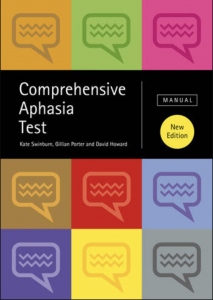
We have newly adapted a Cantonese version of Comprehensive Aphasia Test. This assessment tool will be an important clinical resource when fully validated. In the field of speech and language pathology, there is a need for greater availability of standardized assessment tools among the languages of the world outside of English. The lack of linguistically- and culturally appropriate batteries can pose challenges to clinical practice and research in aphasia. Cantonese is one of several major languages in China with approximately 80 million speakers worldwide. The final product of this study can address the critical shortage of aphasia batteries available in Chinese, and especially in Cantonese. Subsequently, this will greatly impact the profession abroad and in the U.S. as well.
- Cantonese Oxford Cognitive Screen (https://www.ocs-test.org/ocs-background/translations/cantonese-ocs/):
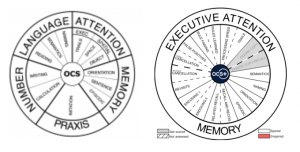
In Hong Kong and most Chinese-speaking cities worldwide, the most widely used instruments for cognitive screening in stroke patients traditionally are the Mini Mental State Examination (MMSE) and the Montreal Cognitive Assessment (MoCA). These screening tools generally lack specificity and sensitivity in identifying common deficits after stroke, such as aphasia, spatial neglect, apraxia, and reading/writing problems. The Cantonese Oxford Cognitive Screen (HK-OCS), following the footprint of the original Oxford Cognitive Screen (OCS) in English, has been designed for the evaluation of stroke patients. It is a clinically-oriented screener that is easy and quick to administer and score. The HK-OCS has been shown to be suitable for testing patients in the acute phase at bedside as well as chronic patients.
- REhabilitation and recovery of peopLE with Aphasia after StrokE (RELEASE) (https://www.aphasiatrials.org/release/):
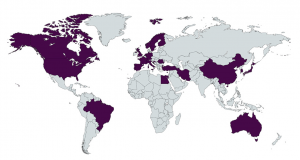
The RELEASE initiative gathers pre-existing data from clinical trials and studies of aphasia treatments after stroke, pools these data in a large database, and uses them to answer new research questions about aphasia. In particular, a database from 5,928 people with aphasia after stroke, in 174 studies across 28 countries, were made. Information about how each person recovered (or did not recover) following speech-language therapy was utilized to explore the patterns of language recovery, what predicted recovery and what type of therapy was linked to the greatest improvements, for whom and when.
B. Recruitment leaflet:
1. 針對中風後失語症之個人化非入侵性腦刺激治療
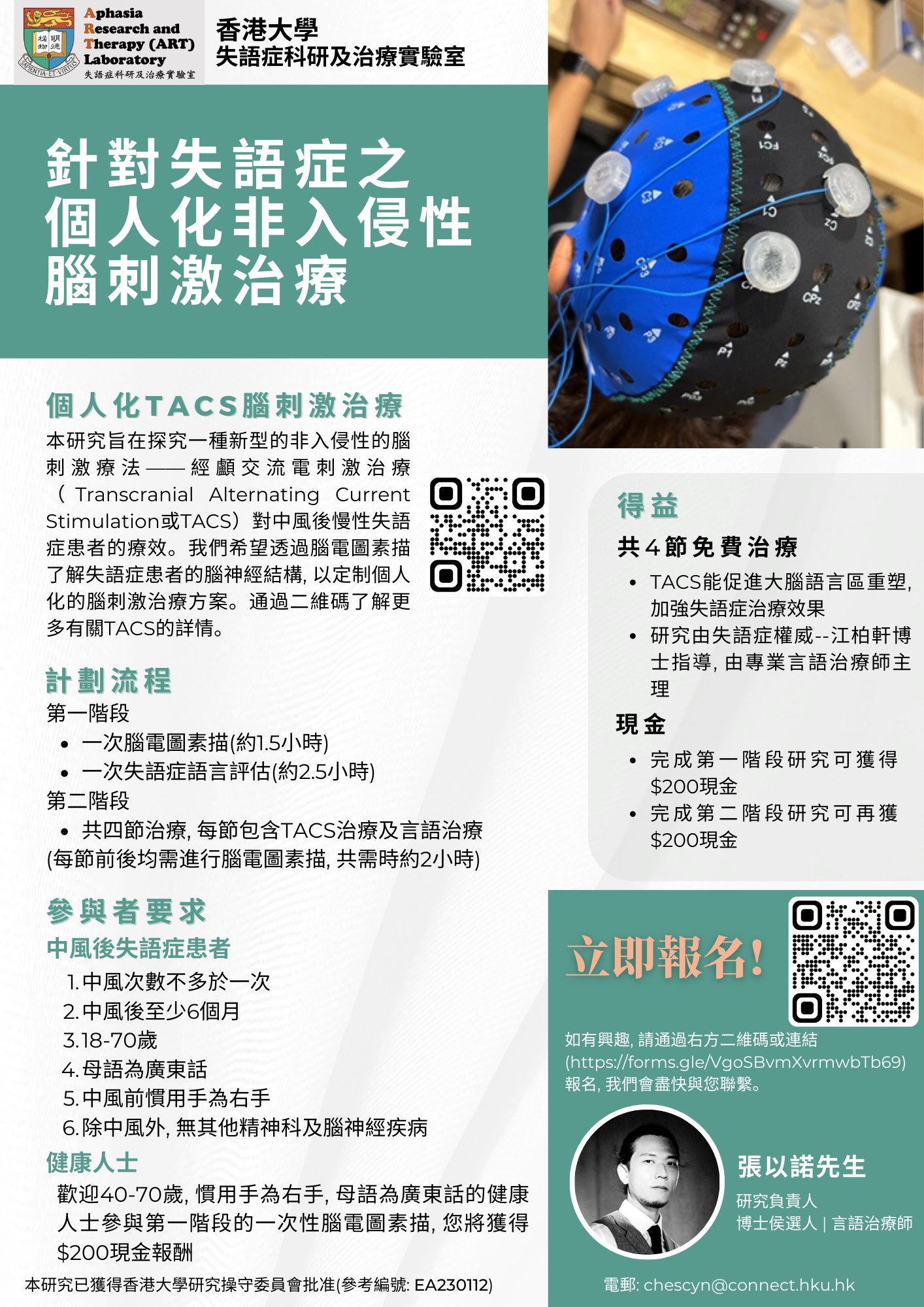
2. 香港失語症患者的 粵語版失語症測試–第二版本(Cant-CAT2) 標準化研究
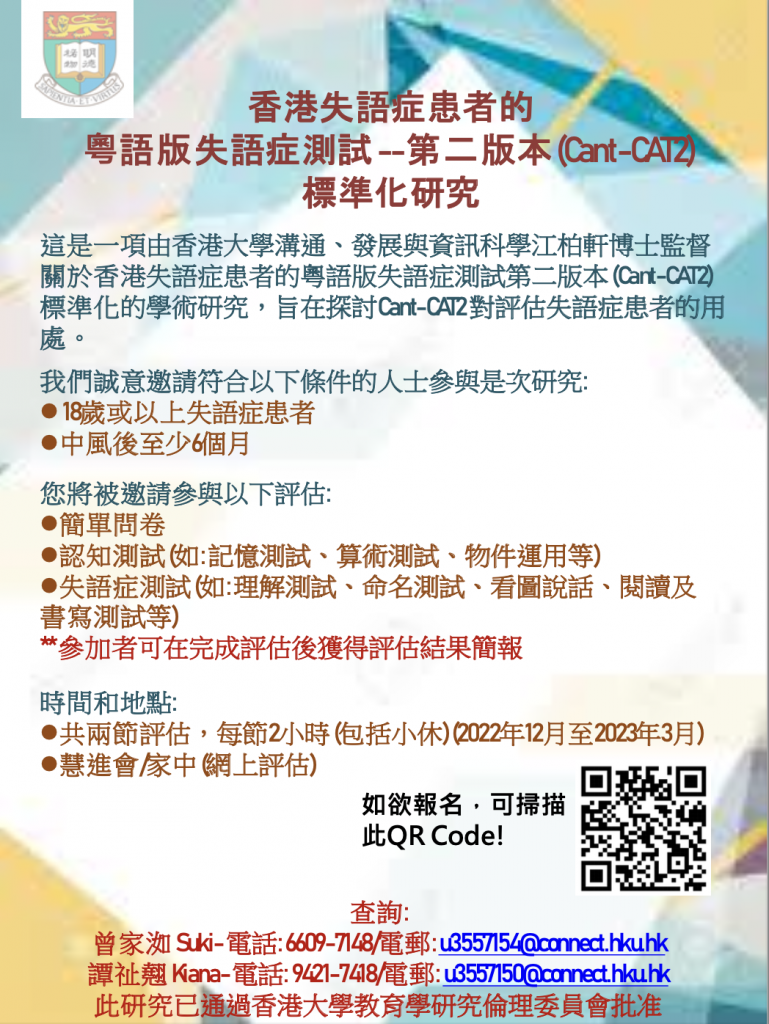
C. Conference papers (selected):
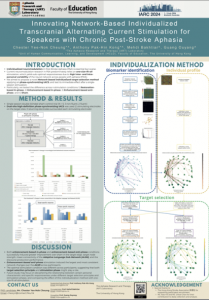
“Innovating network-based individualized transcranial alternating current stimulation for speakers with chronic post-stroke aphasia” presented in The 12024 International Aphasia Rehabilitation Conference (Jul 1 – 3, 2024 – Brisbane, Australia)
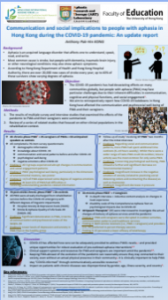
“Communication and social implications to people with aphasia in Hong Kong during the COVID-19 pandemic: An update report” presented in The 12th Hong Kong International Nursing Forum cum 1st Asia-Pacific Qualitative Health Research Network (AQUHN) Conference (Nov 30 – Dec 2, 2022 – Hong Kong)
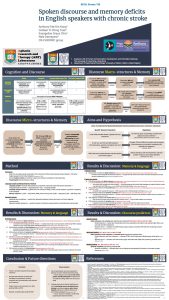 “Spoken discourse and memory deficits in English speakers with chronic stroke” presented in The 2022 American Speech-Language-Hearing Association (ASHA) Convention (Nov 17-19, 2022 – New Orleans LA, USA)
“Spoken discourse and memory deficits in English speakers with chronic stroke” presented in The 2022 American Speech-Language-Hearing Association (ASHA) Convention (Nov 17-19, 2022 – New Orleans LA, USA)
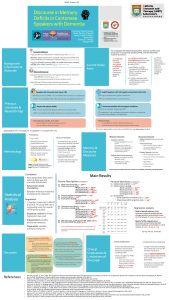 “Discourse in Memory Deficits in Cantonese Speakers with Dementia“ presented in The 2022 American Speech-Language-Hearing Association (ASHA) Convention (Nov 17-19, 2022 – New Orleans LA, USA)
“Discourse in Memory Deficits in Cantonese Speakers with Dementia“ presented in The 2022 American Speech-Language-Hearing Association (ASHA) Convention (Nov 17-19, 2022 – New Orleans LA, USA)
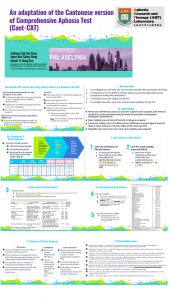 “An adaptation of the Cantonese version of Comprehensive Aphasia Test (Cant-CAT)” presented in The Academy of Aphasia 60th Annual Meeting (AOA2022) (Oct 23-25, 2022 – Philadelphia PA, USA)
“An adaptation of the Cantonese version of Comprehensive Aphasia Test (Cant-CAT)” presented in The Academy of Aphasia 60th Annual Meeting (AOA2022) (Oct 23-25, 2022 – Philadelphia PA, USA)
D. Sister laboratories at HKU:
- HKU Speech and Neuromodulation Laboratory (https://www.snlab.hku.hk/)
